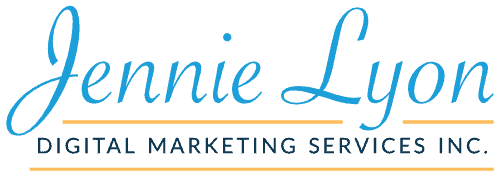What Type of Online Course Should You Create?
We’re diving into the exciting world of online courses and exploring the question I get asked by our online course clients everyday, “What type of online course should you create?” In this digital age, the demand for online learning has skyrocketed, providing entrepreneurs, educators, and professionals with ample opportunities to share their expertise and create profitable online courses. However, with countless possibilities and niches available, it’s crucial to navigate this landscape strategically. So, let’s embark on a journey to discover your ideal online course and set you on the path to success!
Content Overview
- Identifying Your Passion and Expertise
- Analyzing Marketing Demand
- Choosing an Online Course Format
- Defining Learning Objectives and Online Course Structure
- Leveraging Online Course Learning Technology and Platforms
- Craft Compelling Online Course Content
- Implement Effective Online Course Marketing Strategies
- Ensure A Positive Online Course Learning Experience
- Adapting and Evolving Your Online Course
- This Week’s Action Plan
- That’s an Online Course Wrap!
Identifying Your Passion and Expertise:
The first step in creating an online course is identifying your passion and expertise. What subjects do you excel in? What knowledge can you share with others? Reflect on your skills, experience, and unique perspectives. Consider your professional background, personal interests, and areas where you have gained valuable expertise. By leveraging your passion and expertise, you’ll be able to create a course that resonates with your audience and keeps you engaged throughout the process.
Analyzing Market Demand:
Once you have a clear idea of your passion and expertise, it’s essential to analyze market demand. While it’s important to create a course you’re passionate about, it’s equally vital to ensure there is a target audience willing to invest in your knowledge. Your online course HAS to speak to your ideal client avatar. Conduct market research to identify trends, gaps, and potential opportunities in the online education space. Explore forums, social media groups, and industry-specific websites to understand what people are looking for and what challenges they need help with. This analysis will help you align your course idea with market demand.

Resource: Ideal Customer Avatar Worksheet – Are you struggling to know your ICA inside and out? Do you have an exact vision of who your ICA is? This template is going to help you dig into those important details you need! Remember, you NEED to know your ICA before you can begin to market to them. Because if you are marketing to everyone, you are marketing to no one!
Choosing an Online Course Format:
Now that you have a solid understanding of your expertise and market demand, it’s time to decide on the format of your online course. There are several formats to consider, including:
Video-based Courses:
These courses typically consist of pre-recorded videos that guide learners through the content. Video-based courses are highly engaging and allow you to showcase your personality and teaching style effectively.
Text-based Courses:
Text-based courses utilize written content, such as articles, e-books, or PDF guides. They can be convenient for learners who prefer to read at their own pace and refer back to the material easily.
Audio-based Courses:
Audio-based courses leverage podcasts, audio recordings, or voice-over presentations. This format is ideal for individuals who prefer to learn on the go or those with visual impairments.
Interactive Courses:
Interactive courses incorporate quizzes, assignments, discussion boards, and live sessions to enhance the learning experience. These courses foster engagement and enable learners to interact with you and fellow students.
Consider your strengths, target audience preferences, and the nature of your content when selecting the course format that aligns best with your goals.
Defining Learning Objectives and Online Course Structure:
Before diving into course creation, it’s crucial to define clear learning objectives and structure your course effectively. Start by outlining the key takeaways you want your students to achieve. Break down your content into modules or sections, ensuring a logical flow that builds upon previous knowledge. Create learning goals for each module, and design activities and assessments that allow students to apply what they’ve learned. A well-structured course enhances learning outcomes and keeps learners motivated throughout their journey.
Leveraging Online Course Technology and Platforms:
Next, you need to decide on the technology and platforms you’ll use to deliver your online course. Numerous options are available, ranging from all-in-one learning management systems (LMS) like Teachable and Thinkific to self-hosted solutions like WordPress with plugins such as LearnDash or LifterLMS. Consider factors such as ease of use, customization options, scalability, marketing features, and pricing when selecting the platform that suits your needs and budget. Leverage the available technology to create an intuitive and engaging learning experience for your students.
Crafting Compelling Online Course Content:
The quality of your course content is paramount to its success. Craft your content in a way that captivates your audience, making it informative, engaging, and actionable. Utilize a variety of teaching methods, including video lectures, case studies, real-world examples, and interactive elements. Incorporate visual aids, such as infographics or slide decks, to enhance comprehension. Additionally, break down complex concepts into digestible chunks and provide practical exercises to reinforce learning. Remember to maintain a consistent and engaging tone throughout your content to keep your students motivated and connected.
Implementing Effective Online Course Marketing Strategies:
Creating an exceptional online course is only half the battle. To attract students and generate revenue, you need to implement effective marketing strategies. Leverage social media platforms, email marketing, content marketing, and search engine optimization (SEO) techniques to promote your course. Build an engaging website or landing page that showcases the value and benefits of your course. Consider offering free content, hosting webinars, collaborating with influencers, or providing early-bird discounts to entice potential students. Focus on building a strong brand presence and nurturing relationships with your audience to drive course enrollments.
Ensuring a Positive Online Course Learning Experience:
While creating and marketing your course is crucial, it’s equally important to ensure a positive learning experience for your students. Implement effective student support systems, such as providing prompt responses to inquiries, creating a supportive community or discussion forum, and offering periodic check-ins or live Q&A sessions. Continuously gather feedback from your students to improve your course content and delivery. By prioritizing student success and satisfaction, you’ll establish a solid reputation, drive positive word-of-mouth, and encourage repeat enrollments.
Adapting and Evolving Your Online Course:
The online education landscape is ever-evolving, just like all marketing. To stay relevant and competitive, it’s essential to continuously adapt and evolve your online course. Stay updated on industry trends, emerging technologies, and shifts in learner preferences. Then you must monitor student feedback, track course performance metrics, and be open to making necessary improvements. Regularly update your course content to ensure it remains current and valuable. By embracing change and innovation, you’ll maintain a competitive edge and provide ongoing value to your students.
This Week’s Action Plan:
- Jump over to jennielyon.com/ica and download our ICA worksheet. It will help you REALLY identify who you are creating this online course for! Make sure your online course aligns with what your ideal client avatar wants!
- Survey your audience! Once you have an idea for an online course, it’s time to ask your audience what type of online course they’d be interested in?
- Do they need a course that is a starting point?
- Do they need a course that is a spotlight of one of your specific services?
- Do they need a signature course that will take them A-Z with a full transformation?
- What topic would they be interested in when it comes to an online course?
- Then, start to pull together topics, titles, taglines, and transformation statements and poll your audience again to see what resonates with them!
- Schedule a FREE consultation with me at jennielyon.com/chatwithjennie I’m happy to give you feedback on what you have so far!
That’s an Online Course Wrap
By identifying your passion, aligning with market demand, and then selecting the right format, defining learning objectives, leveraging technology, crafting compelling content, implementing effective marketing strategies, ensuring a positive learning experience, and adapting to changes, you’re well on your way to creating a successful and impactful online course. Remember, creating a course takes time, effort, and continuous improvement, so stay open to feedback, adapt to changes, and always prioritize the needs of your learners. Embrace the digital education revolution and empower others with your knowledge and expertise!
Links for this episode:
Rate, Review, & Subscribe on Apple Podcasts
If you like what you hear on the podcast, please consider rating and reviewing my show! Woo Hoo! Click here, scroll to the bottom, tap to rate with five stars, and select “Write a Review.” I would love to hear what episodes you enjoy the most!
If you haven’t done so already, please subscribe to the podcast. I’ll be adding new content weekly. If you’re not subscribed, there’s a good chance you’ll miss out. Subscribe now!
























